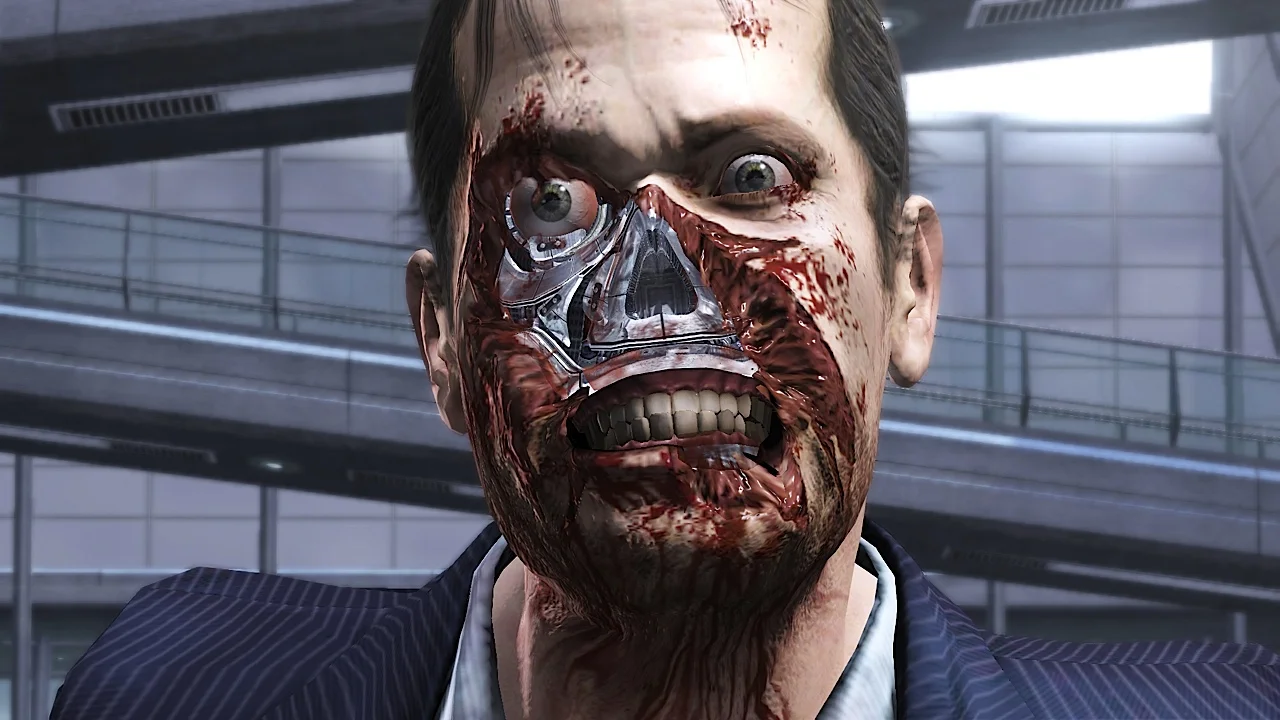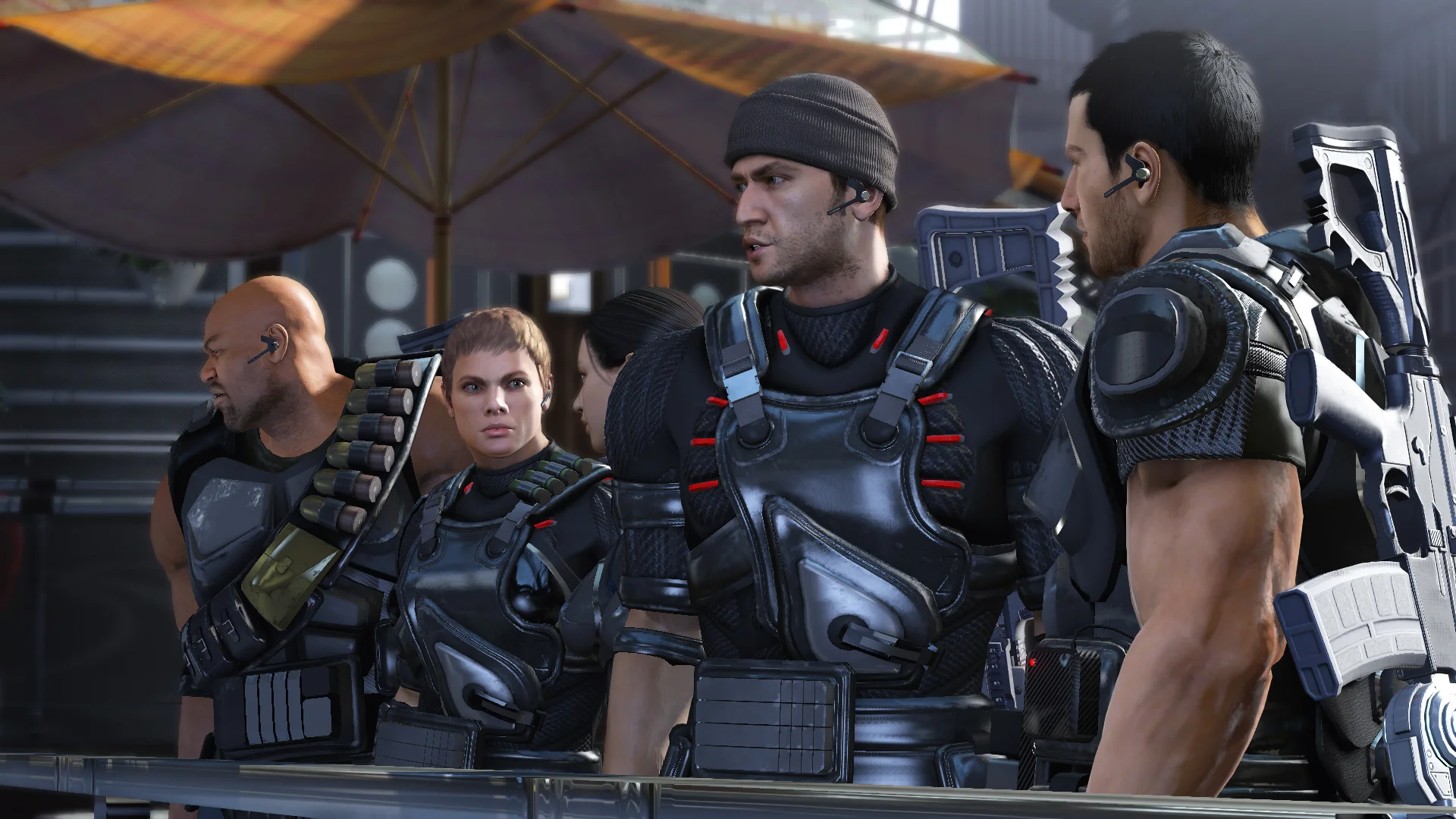BINARY DOMAIN - Late to the Party Review
Binary Domain is one of those names that sounds really good on paper, but like some other westernized names (Fuse, Haze, Conduit, etc), it can contribute to a title getting lost in the shuffle. February 28th, 2012 wasn’t exactly crowded with quality releases, though that month did offer both the much-loved Kingdoms of Amalur and the well-received Resident Evil Revelations, so not all bad. Binary Domain's obtuse title did not help it stand out whatsoever, and that's a shame. Here’s the bright side, though. PlayStation Plus users now have a second chance to experience the game, and it's something I couldn’t recommend more. Here are my full (though admittedly late) thoughts on Binary Domain.
The game centers around a Rust Crew, an elite task force meant to defend the Geneva Convention, which contains a clause that forbids the creation of what are referred to as Hollow Children. These are robots that are able to completely pass for human beings, a ruse aided by the fact that they themselves don’t even know they are robotic in nature. The game takes this concept and actually succeeds in delivering an effective narrative and conclusion, which honestly surprised me. Some of the characters, main guy Dan and Big Bo to be specific, can be ham-fisted with their dialogue, especially early on. Not the best first impression, mind you, but over time you do grow to enjoy all of the characters in a quasi-Expendables kind of way. All have something to contribute, and by the end of the game they have all had a chance to shine. The game weaves a few heavy themes in with its human vs robots premise, including alcoholism, abuse, racism, etc. Again, subtlety is at a minimum here, but it does succeed in getting its point across.
One of the unique mechanics BD offers is the ability to chat with your teammates via an attached headset or mic. During battle you can issue commands of the general variety (hold, charge, cover me, etc) and during certain times your team members will offer up a battle strategy, which you can either approve or dismiss. All decisions of this nature affect trust amongst the group. Giving them the okay on tagging an area with a grenade or letting them charge in will raise how much said member trusts you. Likewise, accidentally tagging one of them in the leg will have a negative effect. These moments help you feel less like a lone wolf fighting with a bunch of AI and more like part of an actual squad. When in between battles you can also partake in conversations with your teammates, which also can either help or hurt your trust. As for the commands, you can still use them even without a mic, which is what I ended up doing, even when I had a bluetooth earpiece available. It was catching too much noise, and my crew kept responding to commands I never gave, which can lower your trust level quite quickly. Not using the mic was a bit of a bummer, but it didn’t hamper my experience too much once I got used to it.
It all comes together to form a nice camaraderie between you and your squad, but other than them not outright ignoring you when giving orders, there aren't any other tangible benefits to having a high trust rating. Sure, I felt terrible when I accidentally shot Rachel and felt just a bit bad when catching Charlie with a grenade, but that's my own guilt-ridden morality, not something that the game is actually punishing me for. Trust goes down, but after that nothing else of real consequence happens. It’s sad that the game most likely won’t get a sequel, as I would love to see the developers get another shot at fleshing these ideas out further.
As you go further along, you will gain access to shopping terminals that are spread around Tokyo. This is where you can buy upgrades to your team (nanomachines) as well as upgrades to your weapons. Dan, the one player you control, has four slots total. One that carries your pistol with unlimited ammo, one slot for grenades, and one that carries his upgradeable weapon, which is an assault rifle that can also fire a stunning pulse when charged up. The other slot is for weapons you either buy or pick up along the way, but those cannot be upgraded. I enjoyed playing around with the various nanomachine load outs for my team, and while the combinations are somewhat limited, you are able to tweak the squad to your method of combat. If you like charging in, you can make sure your squad is able to run right alongside you. Likewise, if you like being careful, then taking a different approach to the nanomachines will suit you best. Again, I would have truly enjoyed seeing this expanded upon in a sequel.
For the most part, the combat runs smoothly, though there are some small hiccups that surface from time to time. For instance, it seems one of Dan’s greatest enemies is not a robot or giant mech. No, no, his archenemy seems to be the ladder. Frequently I would attempt to scale ladders, but the game would reject it on the first try and throw me right off. It would be fine the second time, but it happened enough to warrant a mention. Same thing with rolling from cover to cover. The fluidity of Gears of War was not present here, as sometimes when rolling up into cover the character would just roll and then stand back up, or when attempting to move to new cover from the side, as to avoid fire, he would instead vault over the cover, which would leave him completely exposed since stuck in a longer animation. Things like this aren't game breaking, but they do grate on the nerves over long play sessions. All that said, the actual gunplay is quite fun and left me wanting more. The weapons I used all felt powerful, including the shotgun, which is one of the better versions of the weapon I’ve seen in awhile.
The developers implemented a few unique combat tactics to keep it from just being a shooting gallery, and these were much appreciated. Things like being able to take out an opponent's legs to temporarily down them, which helps crowd control, were nice, but if you forget to finish the job you will get the bejesus scared out of you when one grabs your leg from around cover (trust me, it happened to me more than a few times). Also, if you’re able to score a headshot on an enemy, their head will come completely off, and because they can’t see they will become confused, leading them to shoot at their comrades if close. These little touches added just enough strategy to keep the combat from becoming boring. In fact, I always looked forward to gunfights, and enjoyed adapting to different strengths and weakness of my various shuffled squads.
The game does have a co-op and multiplayer mode, but with the game being a bit older, it wasn’t something that I was going to dive into. If you’re looking for an entertaining combat driven shooter that successfully blends a summer blockbuster type narrative with just a little something extra, then Binary Domain would well be worth your time. Sadly the game did not find an audience upon release, so any potential sequel was probably shelved long ago, and that's a shame. That should, however, not stop you from taking a trip through Tokyo with Dan, Faye, Cain, and company, as there are ample things to love about the game that Yakuza Team and Sega created. If you’re a PlayStation Plus user at the moment, then there is really no reason not to add this game to your download queue.








